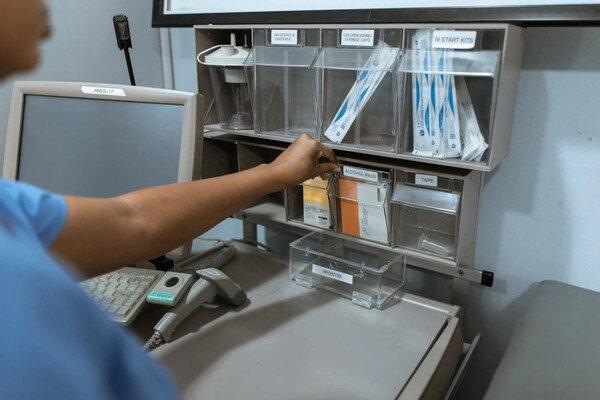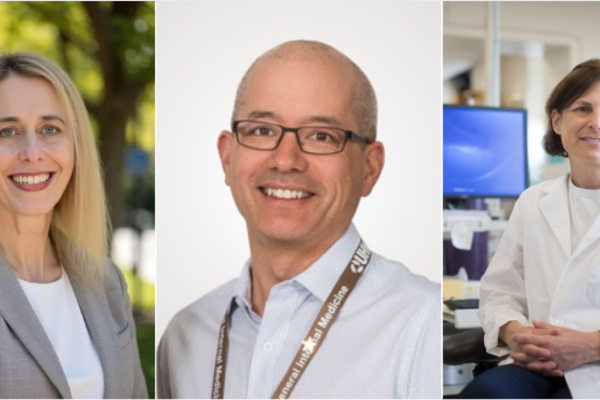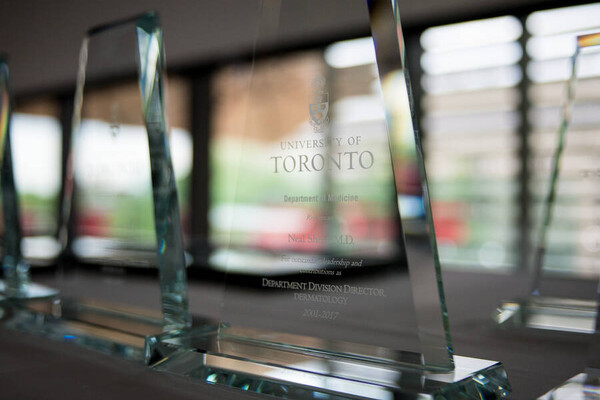Main Second Level Navigation
- Welcome
- Why Toronto?
- History of the Department
- Vision & Strategic Priorities
- Our Leadership
- Our Support Staff
- Location & Contact
- Departmental Committees
- Department of Medicine Prizes & Awards
- Department of Medicine Resident Awards
- Department of Medicine: Self-Study Report (2013 - 2018)
- Department of Medicine: Self-Study Report (2018 - 2023)
- Communication Resources
- News
- Events
Faces of U of T Medicine: Kieran Quinn
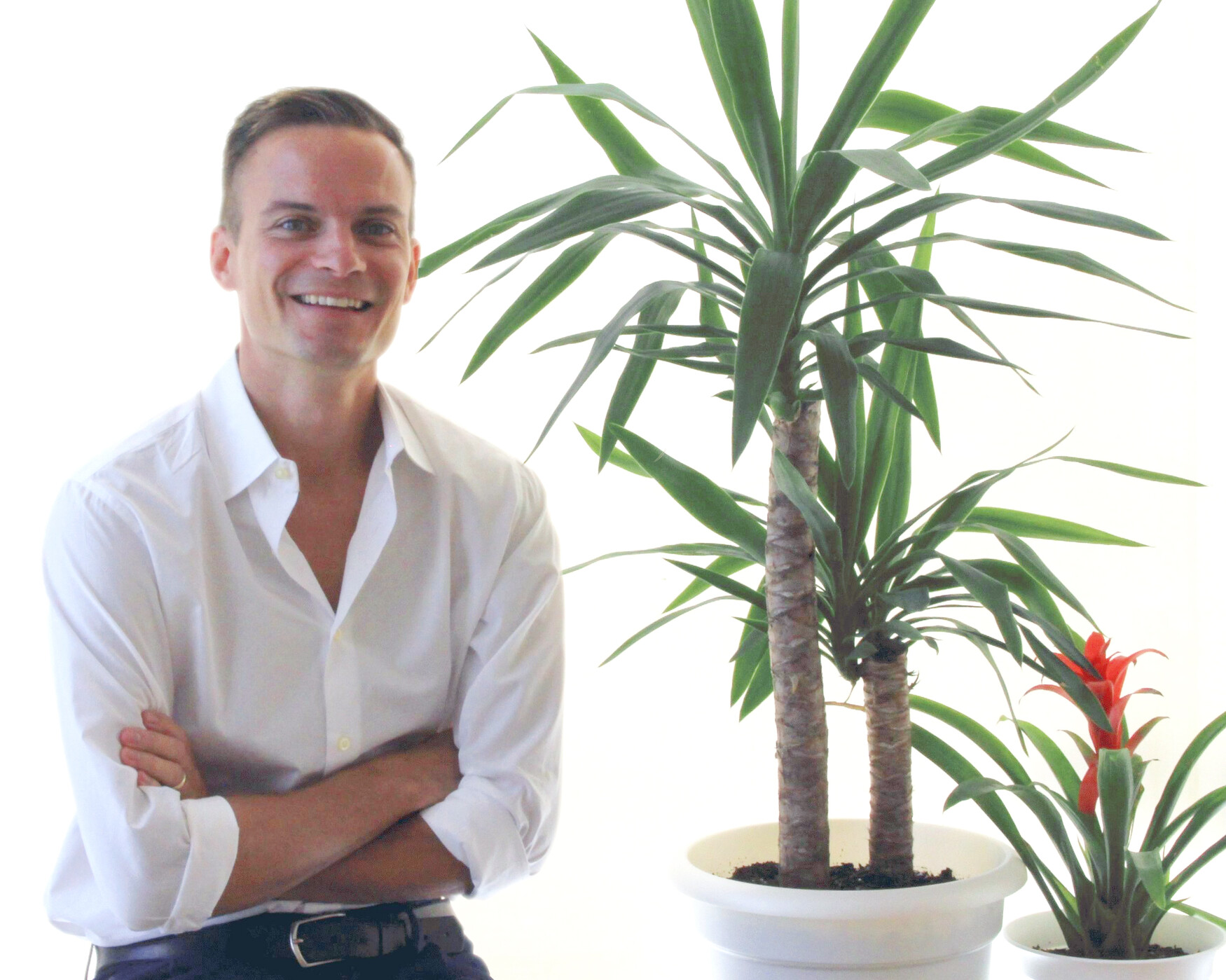
Claire Wiles
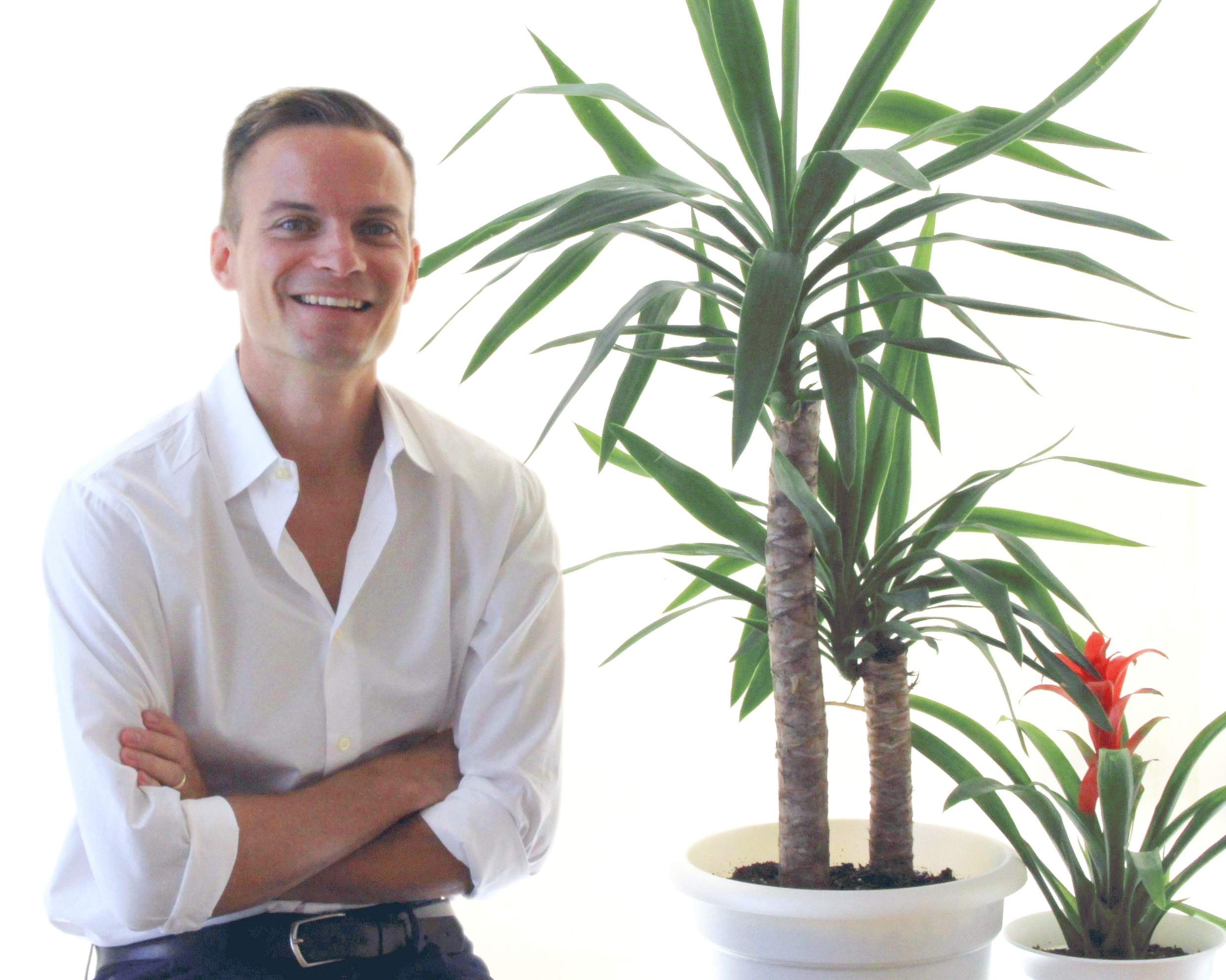 Dr. Kieran Quinn is a general internist and palliative care physician at Mount Sinai and Bridgepoint Hospitals. He is a health services researcher with an interest in palliative care for people with non-cancer illnesses, and is the former host of the Rounds Table podcast. Today, he’s pursuing his PhD in Clinical Epidemiology and Health Care Research at the Institute of Health Policy, Management and Evaluation at U of T while completing the Department of Medicine’s Clinician-Scientist Training Program (CSTP).
Dr. Kieran Quinn is a general internist and palliative care physician at Mount Sinai and Bridgepoint Hospitals. He is a health services researcher with an interest in palliative care for people with non-cancer illnesses, and is the former host of the Rounds Table podcast. Today, he’s pursuing his PhD in Clinical Epidemiology and Health Care Research at the Institute of Health Policy, Management and Evaluation at U of T while completing the Department of Medicine’s Clinician-Scientist Training Program (CSTP).
In 2018, Dr. Quinn earned one of Canada’s most competitive and prestigious doctoral awards: the Vanier Canada Graduate Scholarship, a prestigious honour given exclusively to Canada’s rising stars who have shown academic excellence, research potential and leadership.
Writer Claire Wiles sat down with Dr. Quinn to understand more about his research in palliative and end-of-life care, and his path to becoming a clinician-scientist.
Can you explain your area of research?
I’m interested in looking at the role that palliative care plays in the care of people with non-cancer illness. Current evidence for the benefits of palliative care typically focuses on people with cancer, and people with non-cancer illness have a very different illness trajectory. This can make it difficult to determine if someone will derive the same benefits from palliative care that we’ve seen in patients with cancer. As the awareness of the benefits of palliative care continues to grow, it’s important that we have evidence to support its use in the care of those with non-cancer illness. My area of research looks at the impact that palliative care can have on healthcare use, such as hospital and ICU admission or emergency department visits. My interest in that stems from the many patients who I care for near the end of life who have recurring hospital and ICU admissions, which impacts their enjoyment and quality of life.
What is it about palliative and end of life care that interests you?
My interest in palliative care came from one of my first nights on call when I was a first-year internal medicine resident. I was asked to see an older gentleman who had advanced dementia. On his best day this man couldn’t recognize his family, couldn’t get out of bed and required complete care for all of his basic activities. He was admitted to hospital for pneumonia, and as a first-year resident I did what we’re asked to do as far as treating the pneumonia. But the next morning I asked my supervising staff if this was the type of care that patients at this advanced state of dementia wanted, and if we could be doing better to provide more comfort-focused care that improves their quality of life. I was told that the system is hard to change and that there likely wasn’t much I could do about it. That didn’t sit well with me – so I set about trying to make a change through my research.
What has been your most memorable moment during your training?
One of many moments that’s top of mind was Dr. Allan Detsky’s and my involvement in our first-ever experience with medical assistance in dying. Over the course of his care, we became very fond of, and got to know his family extremely well prior to performing medical assistance in dying. We talked to him a lot about why he wanted this treatment and why he felt it was the right treatment for him. Going into that experience both Dr. Detsky and I were very nervous and hesitant. We weren’t sure how we were going to feel after the procedure and if it was the right thing for our patient despite what he had said. We had a lot of trepidation around it. After the fact, we both felt at peace and that it really did feel like the right thing for him and his family and helped him relieve the suffering that he was going through.
This was such an important experience that Dr. Detsky and I wrote an essay about it, which was published in JAMA Internal Medicine. I hope it helps identify that although MAiD can be controversial for some people and people have different beliefs on it, which we recognize, it can be an effective treatment for the right person at the right time, under the right circumstances. This really helped me in my clinical work around how we can offer a variety of tools to help relieve that suffering that we see every day in our clinical work, but also that bond that we created with the family is really one that sticks with me and I won’t forget as part of the experience.
The CSTP training can be very long. What is it about being a clinician-scientist that makes it worthwhile?
I like to believe that we are trying to make a change on a system level. There are many people doing incredible work at the local and individual levels, and I think those efforts should be celebrated. For me, with that experience that I had in my first year of residency, I wanted not only to affect that man’s care, but I wanted to try to affect the care of thousands of people in Ontario and Canada who suffer from dementia and other terminal illnesses. I wanted to try to change the care that they would get through the type of research that I do – to show that there are other approaches like palliative care that are different than the way we’ve thought about healthcare and medicine traditionally.
You hosted the Rounds Table podcast for three years. Though the show has ended, what contributions do you think it made to the medical community?
One of the goals we were trying to achieve with the Rounds Table was to help clinicians and practitioners to be able to digest and apply the latest medical evidence to their daily practice without needing a PhD in clinical epidemiology to digest those articles. We tried to do it in a way that was more entertaining for our audience and that they could listen to on their commute. We reached over 300,000 listeners and it was downloaded in over 150 countries. I think that that kind of educational media is another way to be creative in how we continue to help healthcare practitioners stay up-to-date and improve the care of their patients. And I’m happy to say that my friends Drs. Mike and Jon Fralick just recently relaunched it. So I’m excited for what they have in store.
Do you have anything else to add?
I think that there will always be a need for clinical research and to have clinicians who bring the clinical perspective to the research side of things. If you’re a trainee out there who’s interested in research, programs like the CSTP will facilitate, support and ensure that you’re successful in your training and ultimately in your career. I think that even if it’s just a small thought in your head that perhaps you are interested in clinical research, many of us who have gone through the program are happy to share with you why we made this decision and why it’s been the right decision for so many of us. It really is a unique program in Canada and is training the leaders of clinical research for tomorrow.
This is part of a series of profiles that feature trainees and graduates of the Department of Medicine’s Eliot Phillipson Clinician Scientist Training Program. Established in 1994, this competitive program enables MD specialists to pursue research as a major component of their career in academic medicine and become leading innovators in research.

